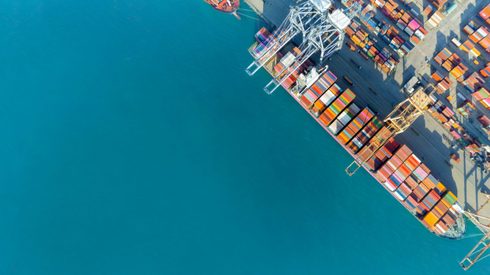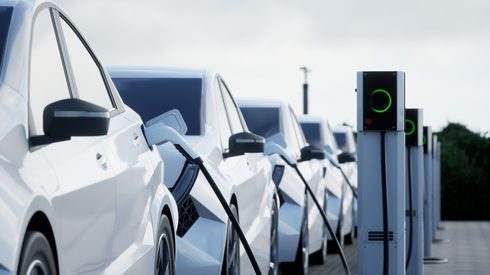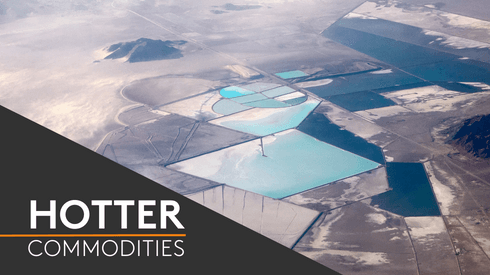Duane Runciman is project director at Mures Magnesium (MMg), which plans to reprocess existing waste by-product from chromate production to initially produce 20,000-22,000 tonnes per year (tpy) of magnesium in Romania.
The company’s production timeline assumes effective commercial production to begin from the end of the first quarter of 2028, but Runciman emphasized that this target is “as always, subject to the age-old question of full project financing being available.”
And for critical raw material projects in Europe more generally, Runciman pointed to financing as a pervasive challenge, largely unaddressed by the CRMA.
If the CRMA is to “bear fruit,” the EU will need to “step up,” and put “finance mechanisms into place to encourage and support companies such as MMg to come into commercial production,” Runciman said.
The CRMA was approved by the European Council in March and aims to increase and diversify the EU’s critical raw materials supply. Published in the EU’s official journal on Friday May 3, it is expected to enter into force on May 23, when the new CRM board will have its inaugural meeting.
It sets non-binding benchmark goals for the domestic capacities of a number of critical materials, including magnesium. Notably, by 2030, it calls for EU countries to produce at least 10% of the bloc’s annual consumption for extraction, and states that no more than 65% of annual consumption should come from a single third country.
It acknowledges that critical raw material projects in the EU “often face difficulties with access to finance,” but stops short of introducing a new financing mechanism or state aid framework, instead calling for member states and the European Commission to “assist in access to finance and administrative support.”
Market participants and experts have emphasized that the CRMA is vastly different in intention and scope from the US’ Inflation Reduction Act (IRA), with the CRMA more of a regulatory framework and IRA more incentive and finance driven.
Leaders in other critical material projects have pointed out that European financing shortfalls compared with the scale of US financial incentives risks undermining developing sectors in the bloc.
Europe has no commercial-scale primary magnesium production, and the continent’s consumption is overwhelmingly supplied by China.
MMg began project development in 2012, initially planning to produce electrical grade fused magnesia, but market changes brought on by the Covid-19 pandemic prompted the company to explore magnesium production prior to the late-2021 magnesium crisis, Runciman said.
Development of the project has received support from EIT RawMaterials, a consortium co-funded by the EU that aims to foster collaboration in the EU to support the competitiveness, growth and attractiveness of the European raw materials sector.
A second major obstacle for critical raw material producers in Europe is the regulatory environment, Fastmarkets heard last year, though Runciman emphasized that MMg has found Romanian authorities receptive.
“We have found solid guidance from the Romanian authorities – we see an expedient process rather than roadblocks,” he said, adding that the company believes the environmental authorities want to see the project go ahead.
MMg’s novel production process is an advantage in this respect, he said, and the company has “made it clear from the get-go that it’s is an environmental remediation project with a critical raw material, monetizable series of outputs with significant job creation potential for the area.”
Price volatility
Runciman expressed concerns about the competitiveness of European producers facing volatile price moves from Chinese producers.
“What company or financial institution is willing to assume the risk of the typical race-to-the-bottom pricing behavior which we have repeatedly seen [from some Chinese producers]?” he said.
Magnesium smelters in the Fugu province of China, which accounts for the bulk of magnesium production, are able to use power in the form of waste gas emissions from neighboring captive semi-coke smelters, helping them to keep their power input costs to a minimum.
Concerns about price competitiveness compared with Chinese producers is shared by other prospective critical material producers in the EU, including those exploring the potential introduction of gallium.
While the bloc struggles to find a viable alternative supply of gallium – on which China introduced export controls in August 2023 – Greek energy and metal conglomerate Mytilineos has explored introducing commercial production.
But the company found that, without price support for both gallium production and the alumina refining from which it is a by-product, such a project would be vulnerable to unsustainable price movements.
“China could easily decide to flood the global market and put everyone out of business overnight,” a spokesperson for the company told Fastmarkets last year.
Runciman also questioned if the end-user sector would support European, more environmentally friendly production at higher prices.
“Is there a willingness to support the European products’ higher pricing due to the regulatory, energy, labor and fiscal regulation [aspects]? I fear not,” he said.
Want to hear more insights on this market? Subscribe to Fast Forward, your definitive podcast for the critical minerals and battery raw materials markets, today. Your host, Andrea Hotter, will address burning topics in the critical minerals market including the latest trends, market buzz and game-changing technologies that are shaking up the sector. Find out more here or subscribe on Spotify, Apple Podcasts, Amazon Music or wherever you get your podcasts to get the latest episodes when they are released.






